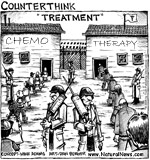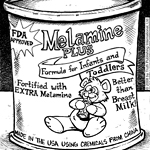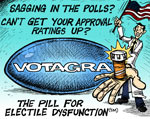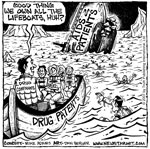The Surprising Relationship between Sun, Vitamin D and Cancer
| Share on Facebook | Share on Twitter | Share on Google+ |
About twenty years the Australian government organized a campaign to persuade its citizens to use sun block and to stay out of the sun to prevent skin cancer. Faced with the highest levels of skin cancer in the world, the health ministry reasonably assumed that if Australians got less sun, they would get less cancer.
The campaign to get Aussies to stay inside more and to cover with sunscreen when they went out was on one level a complete success. Australians used sunblock in record numbers. The campaign to prevent skin cancer, however, was a complete failure, as rates of cancer, especially deadly melanoma, soared.
It turned out that there were two very good reasons the campaign failed.
- The UV-A rays from the sun weaken the immune system in the skin. At that time, sunblock and sunscreen did not prevent against UV-A rays.
- The UV-B rays from the sun help the skin make immune-stimulant vitamin D. Sunblock and sunscreen were able to stop UV-B.
So, using the methods of the time, all the cancer prevention program managed to do was to increase cancer-causing factors while decreasing cancer-fighting factors. Fortunately, there are now sunblocks that block UV-A (although they are not universally available in the United States) and people know to take their vitamin D.
The Relationship Between Vitamin D and Cancer Prevention
The link between vitamin D and cancer prevention seems to lie in the liver. Vitamin D activates a gene in the liver that makes an enzyme called CYP3A4. This curiously named enzyme detoxifies the bile that the liver makes to carry away excess cholesterol into the colon for mixing with stool and removal with bowel movement. Helping the liver do its function of detoxification may be the main way vitamin D seems to prevent many kinds of cancer.
Improved liver function explains both vitamin D and breast cancer prevention and vitamin D and prostate cancer prevention. The most common forms of breast cancer grow faster in the presence of estrogen. The liver detoxifies excess estrogen.
The most common forms of prostate cancer grow faster in the presence of testosterone. The liver detoxifies excess testosterone. And detoxifying the bile protects the colon and lowers the risk of colon cancer.
The reason some people may benefit from vitamin D a lot more than others is likely to be that some people have more additional substances in their body that need to be detoxified by CYP3A4, including about half of all the drugs in existence. If increased risk of cancer is a side effect of a drug, then it's probable that taking vitamin D reduces the risk.
This enzyme is especially important for detoxifying birth control pills and antidepressants. But the simple fact is, not everybody gets the same degree of benefit from taking vitamin D. Some get more, and some get less. The darker your skin, and the farther you live from the equator, the more likely vitamin D is to help your body stop cancer before it's even diagnosed.
Vitamin D and Cancer Treatment
While vitamin D probably plays an important role in preventing many kinds of cancer, it's not necessarily a good idea to take vitamin D supplements if you already have active cancer, especially if you have cancer of the bone.
That's because the combination of the activity of the bone cancer and your vitamin D supplement can make bloodstream calcium levels too high. However, ask your doctor if taking up to 5,000 IU a day might help you recover from cancer damage to your bones once your cancer is in remission.
Selected References:
Chlebowski RT, Johnson KC, Kooperberg C, et al. Calcium plus vitamin D supplementation and the risk of breast cancer. Journal of the National Cancer Institute 2008; 100(22):1581–1591.
Freedman DM, Chang SC, Falk RT, et al. Serum levels of vitamin D metabolites and breast cancer risk in the Prostate, Lung, Colorectal, and Ovarian Cancer Screening Trial. Cancer Epidemiology, Biomarkers, and Prevention 2008; 17(4):889–894.
Gissel T, Rejnmark L, Mosekilde L, Vestergaard P. Intake of vitamin D and risk of breast cancer--a meta-analysis. Journal of Steroid Biochemistry and Molecular Biology 2008; 111(3–5):195–199.
Grau MV, Baron JA, Sandler RS, et al. Vitamin D, calcium supplementation, and colorectal adenomas: Results of a randomized trial. Journal of the National Cancer Institute 2003; 95(23):1765–1771.
Wei MY, Garland CF, Gorham ED, et al. Vitamin D and prevention of colorectal adenoma: A meta-analysis. Cancer Epidemiology, Biomarkers, and Prevention 2008; 17(11):2958–2969.
-
Skin CareMen Skin Care
-
Free ResourcesFree eBooks
-
Health is not a condition of matter, but of Mind.Mary Baker Eddy
-
Featured Health Supplement
 If you find a product that is as effective as Total Balance, and is better value for money, let us know and we will give you a refund equivalent to your entire purchases of Total Balance…retrospective.
If you find a product that is as effective as Total Balance, and is better value for money, let us know and we will give you a refund equivalent to your entire purchases of Total Balance…retrospective.
-



















